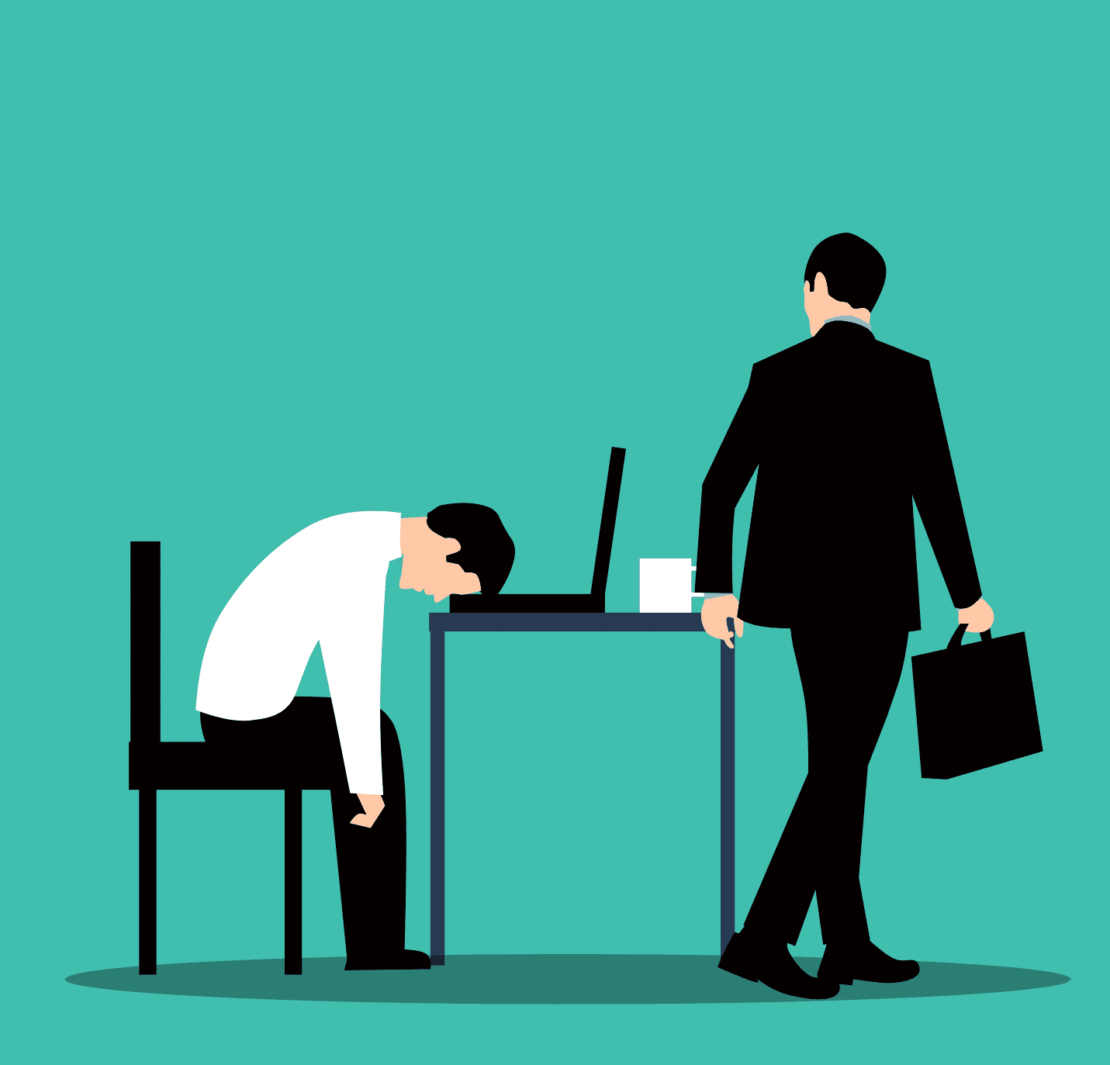Last Updated on October 11, 2022 by Jamie
Everyone has those days when they feel tired and down. However, constantly feeling fatigued and exhausted is not usual and can be due to many factors such as stress, nutrient deficiencies, or an underlying medical condition.
Tiredness can adversely affect work execution, daily life, and social connections. Finding the cause behind fatigue is a challenging task for many doctors. Nevertheless, they view this issue seriously and try to find its hidden reason.
What is Fatigue?

The basic definition of fatigue is the absence of energy and inspiration (both physical and mental). And often comes hand-in-hand with drowsiness, a term that depicts the need to sleep.
Besides tiredness, other symptoms, such as muscle weakness, can sometimes be mistaken for fatigue. However, most people immediately feel better (usually in hours to about a day) by lessening their movement.
It is essential to know that fatigue is a symptom, not an illness. Numerous sicknesses can lead to fatigue, which can be physical, mental, or a combination of both. Depression and other mental issues are one of the primary causes of fatigue, according to this article.
People with fatigue usually encounter certain problems, even though the severity of these problems can differ for every individual.
- Lack of inspiration or motivation to do anything
- Tiring out quickly even after minimal movement or work
- Struggling to maintain focus and memory to start or finish an activity.
Other words that can portray fatigue include:
- Dormant,
- Drowsy,
- Absence of energy
- Broken down,
- Exhausted,
- Discomfort
- Constant feeling of tiredness
Fatigue Symptoms
Fatigue frequently occurs alongside other diseases or symptoms, such as,
- Depression
- Lack of motivation to do things you once enjoyed
- Poor focus
- Disorganized thinking
- Lack of energy
- Anxiety and tension
- Uneasiness
- Crabbiness
- Muscle weakness
- Muscle agony
Other indications of fatigue include:
- Stiff shoulders
- Bags under the eyes
- Exhausted legs
- Entire body fatigue
- Malaise (uneasiness/anxiety)
- Fatigue or absence of inspiration
- Drowsiness
- Irritation and anger
Common Reasons for Fatigue
Fatigue does not always mean that you are tired, nor does it always indicate an underlying sickness. Instead, there can be various clinical and non-clinical reasons for fatigue, including you’re eating habits and lifestyle.
The common fatigue-contributing factors include:
- Mental and psychosocial factors like stress, tension, and depression.
- Physical factors like nutrient deficiency, diabetes, or cancer.
- Pregnancy, breastfeeding, inadequate sleep, and excessive activity.
Fatigue resulting from poor sleep, weariness, or work pressure is not considered a clinical issue. According to the National Institute on Aging, these lifestyles can increase the risks of exhaustion and tiredness:
- Staying up too late
- Excess caffeine
- Excess liquor
- Eating unhealthy foods
Specific individuals are more likely than others to suffer from fatigue. For example, this research shows women are more prone to fatigue. Other such individuals can include immunocompromised patients or those already a victim of mental and physical illnesses.
On the other hand, the list of clinical reasons for fatigue is quite long, and these conditions require you to see a doctor for proper treatments. The possible clinical reasons behind fatigue can be:
- Obesity
- Obstructive rest apnea
- Narcotic and depression medications
- Sleeping disorders
- Sickliness
- Lack of iron
- Diseases
- Kidney infection
- Liver infection
- Cardiovascular breakdown
- Thyroid infection
- Diabetes
- Addison’s infection
- Anorexia nervosa or other dietary issues
- Joint pain, including rheumatoid joint inflammation
- Autoimmune illnesses, for example, foundational lupus erythematosus
- Fibromyalgia
- Contamination, especially long haul
- Tuberculosis, mononucleosis, and AIDS
What is chronic fatigue syndrome?
Tiredness that lasts for a few days to weeks is referred to as acute fatigue. However, clinical papers state that fatigue and fatigue-related symptoms that last more than six months and have no specific reason can indicate that you might have chronic fatigue syndrome or CFS.
The individual with chronic fatigue syndrome often has the following co-symptoms:
- Trouble with sleeping
- Muscle or joint pain without any reason
- Headaches
- Aching lymph nodes
- Sore throat
- Impaired cognition
- Physical or psychological effects aggravate the symptoms of CFS
- General uneasiness or influenza-like symptoms
- Dizziness and nausea
- Tremors without any known coronary disease
How to Combat Fatigue
Source: Unsplash
Step 1: Determine the Clinical Cause
Start by determining the cause or the clinical reason. While fatigue as a symptom isn’t severe, it can indicate a severe medical condition. If you experience extreme and long-haul fatigue, see your doctor. A few factors that can make you feel tired can include:
- Diabetes
- Heart, liver, or kidney illness
- Iron deficiency
- Sleep apnea
- Weight
- Thyroid illness
- Autoimmune illnesses or fibromyalgia
Solve the determining issue. Let’s say you have deduced the causing ailment or suspect that you may have. Therefore, it’s time to treat fatigue from its root cause. You can go for symptomatic treatment rather than treating the infection. For example, you can tackle headaches with medications or CBD oil.
Many people think that the best way to fight this tiredness is getting more rest or change your eating routine, but its effects are only short-term and are of no use unless you solve the main cause.
Take a look at your drugs. A few medications can likewise make you tired, so it is reasonable to check the results of any meds you take. It would be best if you referred your doctor about any aftereffects you have from medicine, including fatigue. Non-prescription medications such as antiallergens can cause sometimes cause fatigue.
Get a diagnosis. When you speak with your doctor about your fatigue, finding out a proper reason can, in any case, be challenging. Fatigue can result from clinical, mental, or physiological causes.
Get some information about Chronic Fatigue symptoms. Any person who has experienced fatigue for a few months can probably have chronic fatigue syndrome. CFS frequently includes symptoms like joint pains, body aches, and soreness throughout the body.
CFS focuses on dealing with the tricky symptoms and working on the patient’s rest and diet.
Step 2: Improve Your Sleep
Stay away from excessive use of caffeine over the day. Although numerous grown-ups use (or abuse) caffeine to give them energy over the day, its excessive consumption can prove to be dangerous and can lead to fatigue.
Sure, a small dose of caffeine in the first part of the day can provide you with an explosion of energy. But it can make you less likely to fall asleep and hence more tired with time.
Our advice is to avoid consuming caffeine to naturally allow your body time to feel tired.
You can also try powerful CBD oil and stress-reducing nootropics to counter the effects of caffeine and improve your sleep.
Another way to improve your sleep is by putting down your mobile around the evening. Try not to use any gadgets after 8 pm since the light from these gadgets can alter the amount of melatonin (a characteristic rest chemical) your body produces, making your sleep cycle irregular.
You can also try reducing your workload and stress levels to aid in sleep. An upsetting way of life can increase fatigue and mental depletion. By lowering this stress, you are giving yourself time to unwind mentally. Go to yoga or try other medications to alleviate anxiety and promote calmness.
Step 3: Work on your Overall Wellbeing
Work on your day-to-day diet. For example, caffeine and sugars can give you quick eruptions of energy but can bring down your levels of energy overall. So, focus on practicing good eating habits and a balanced diet.
Eat minor, regular meals and snacks to prevent fatigue caused by hunger and low glucose levels. When in doubt, eat a small dinner every 3 or 4 hours; that can keep your digestion working over the day.
Eat food sources that are high in protein. Since proteins are most responsible for powering your body, without adequate protein dosing, your body can become fatigued rapidly. Also, keep away from food sources that are greasy or sweet, like processed foods and chips.
Likewise, try to replace your carbs with foods like:
- Chicken, steak, pork, and other meats
- Beans and rice
- Eggs and dairy (milk, cheddar, yogurt, and whatnot.)
Indeed, drinking enough water is the best way to keep your body in optimum condition. Hydrate yourself with water, organic product, and vegetables. Natural products are also high in water and can hydrate your body. Try incorporating water-rich food varieties in your diet, such as:
- Watermelon and citrus organic products (oranges, lemons, et cetera.)
- Broccoli and carrots.
- Adequate hydration keeps your blood thin and can be siphoned all the more proficiently through the body, decreasing fatigue.
Step 4: Try some quick fatigue-relieving activities and exercises
You can start by sprinkling some water all over your face since the shock of cold water over your face and body can quickly diminish your fatigue.
Try getting up and moving around — this can loosen you up and help calm your mind.
- If you have time, practice. A quick gym session or a 20-minute run can increase your energy levels.
- Additionally, focus on your breathing; increased oxygen can further decrease fatigue.
Lay down for a brief rest. Indeed, even just 20 minutes of a power nap can provide you with an explosion of energy. Moreover, it is an effective procedure on the off chance that you realize you should be awake and focused on a specific time of day.
- If you are weary but not tired, resting can assist you with feeling better. So, sit down and shut your eyes. Whether you sleep or not, you’ll feel far better.
As stated above, investing all of your days before a screen can deplete your energy levels. Therefore, try moving away from your tech; that could be during a long open-air mid-day break or an hour spent away from your mobile after you return home.
Another fun yet effective way to combat fatigue is to listen to upbeat, empowering music. Music can diminish the pressure in your body, remove fatigue from your brain, and increase your energy levels.
Lastly, try getting some rest at the earliest opportunity. Don’t depend on temporary solutions for all-time support of your energy. In the best-case scenario, they’ll assist with awakening you for 20 minutes top.
Especially if you are driving or working with heavy machinery, don’t force yourself to stay awake, assuming you feel exhausted.
Momentary solutions for assisting yourself with feeling conscious are less compelling than long-haul changes to your rest plan. These can leave you with shorter-lasting energy daily.
Conclusion
Fatigue can occur for multiple reasons, and each requires a suitable treatment to deal with it. The best way to tackle fatigue is to find its cause and make appropriate lifestyle changes.
Adding nutritional supplements to your daily life can also help combat fatigue.







